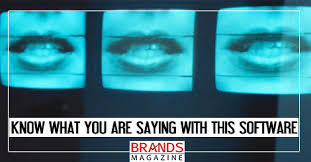
Breaking News
Endless Opportunities on Life's Highway
THE UNCONSTITUTIONAL INCOME TAX
 WOW: Schumer now privately BEGGING to reopen the Gov – Liberal Hivemind
WOW: Schumer now privately BEGGING to reopen the Gov – Liberal Hivemind
 Obamacare's Devastating Legacy: Skyrocketing Costs, Useless Coverage, and Windfall Profits...
Obamacare's Devastating Legacy: Skyrocketing Costs, Useless Coverage, and Windfall Profits...
Top Tech News
 Future of Satellite of Direct to Cellphone
Future of Satellite of Direct to Cellphone
 Amazon goes nuclear with new modular reactor plant
Amazon goes nuclear with new modular reactor plant
 China Is Making 800-Mile EV Batteries. Here's Why America Can't Have Them
China Is Making 800-Mile EV Batteries. Here's Why America Can't Have Them
 China Innovates: Transforming Sand into Paper
China Innovates: Transforming Sand into Paper
 Millions Of America's Teens Are Being Seduced By AI Chatbots
Millions Of America's Teens Are Being Seduced By AI Chatbots
 Transhumanist Scientists Create Embryos From Skin Cells And Sperm
Transhumanist Scientists Create Embryos From Skin Cells And Sperm
 You've Never Seen Tech Like This
You've Never Seen Tech Like This
 Sodium-ion battery breakthrough: CATL's latest innovation allows for 300 mile EVs
Sodium-ion battery breakthrough: CATL's latest innovation allows for 300 mile EVs
 Defending Against Strained Grids, Army To Power US Bases With Micro-Nuke Reactors
Defending Against Strained Grids, Army To Power US Bases With Micro-Nuke Reactors
Oxford's lip-reading AI outperforms humans

Computer scientists at Oxford University have teamed up with Google's DeepMind to develop artificial intelligence that might give the hearing impaired a helping hand, with their so-called Watch, Attend and Spell (WAS) software outperforming a lip-reading expert in early testing.
The figures on lip-reading accuracy do vary, but one thing's for certain: it is far from a perfect way of interpreting speech. In an earlier paper, Oxford computer scientists reported that on average, hearing-impaired lip-readers can achieve 52.3 percent accuracy. Meanwhile, Georgia Tech researchers say that only 30 percent of all speech is visible on the lips.
Whatever the case, software that can automate the task and/or boost its accuracy could have a big impact on the lives of the hearing impaired. It is with this is mind that the Oxford team collaborated with DeepMind, the artificial intelligence company acquired by Google in 2014, to develop a system that can bring better results.

 SpaceX Heat Shield and Starship Mass Production
SpaceX Heat Shield and Starship Mass Production

